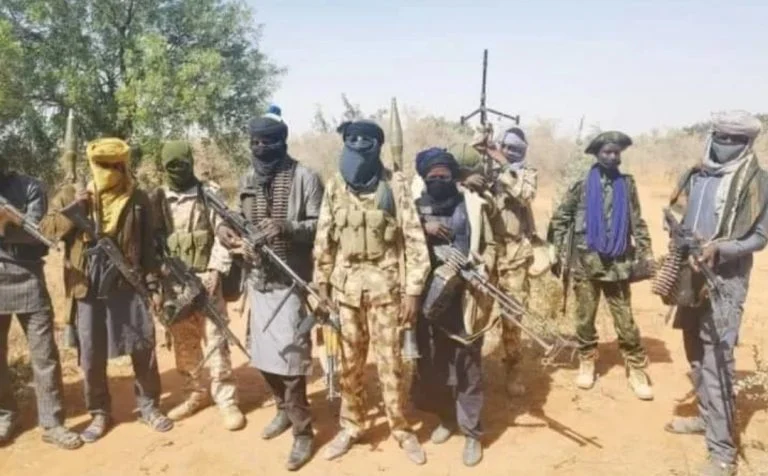
LAGOS, Nigeria – In the charged arena of global politics, where faith, power and insecurity frequently collide, Nigeria has found itself once again pulled into the centre of an international storm. The country, already strained by years of violence in its rural regions, is now grappling with an external pressure unlike any seen in recent memory: a direct threat of military intervention from the United States President Donald Trump.
In this report, Korede Abdullah, Africa Health Report Southwest Correspondent, examines not only the killings that sparked global reaction, but also the competing narratives shaping Nigeria’s identity and its future. What emerges is a complex, often uncomfortable truth—one that challenges simple assumptions about religion, violence and the politics of global sympathy.
A Headline That Shook the World
Trump’s statement, issued in a characteristically blunt social media post, reverberated across diplomatic and religious circles worldwide.
He accused the Nigerian government of allowing “genocide against Christians” and warned that the United States would “stop all aid and consider direct action” if the killings persisted. He also claimed to have directed the Department of Defence—referred to in his post as the “Department of War”—to prepare potential plans.
The comments landed like a diplomatic grenade
For many Nigerians, they represent an unprecedented intrusion into domestic affairs. For others, particularly those grieving fresh tragedies, they appeared as a long-awaited acknowledgment of suffering that has often felt ignored.
Trump’s warning came on the heels of the Yelwata massacre, an attack in Benue State that left a rural community devastated and the world asking hard questions.
Inside Yelwata: The Massacre that Forced a Reckoning
Between 13 and 14 June 2025, armed men descended on Yelwata, a farming settlement that had become a safe haven for internally displaced Christian families. Witnesses described attackers “moving with precision,” torching homes and shooting families attempting to flee under the night sky.
Amnesty International called the attack “coordinated and deliberate,” estimating more than 3,000 people displaced and describing scenes of “families wiped out in minutes.”
Pope Leo XIV expressed profound sorrow during a Vatican address, stating:
“The majority of those killed were already displaced people. Their suffering has been unending. We must not turn away from the violence overwhelming rural Christian communities in Benue.”
Yet the devastation told only part of a larger national tragedy.
Whose Version of Truth? Amnesty vs. The State
While human rights bodies reported up to 200 fatalities, the Benue State Government disputed these figures.
Governor’s spokesperson Tersoo Kula countered with a significantly lower number:
“We confirm 45 deaths. Security reinforcements have been deployed. Yes, homes were burned. But the situation is under control.”
The Nigerian government insisted that the attacks were driven not by religious hatred, but by long-standing tensions involving land pressures, pastoral migration and organised criminal activity.
From Abuja, Information Minister Mohammed Idris was unequivocal:
“Criminal activities and terrorism do not target any particular religious group. This is not about religion; it is about crime. Both Christians and Muslims are victims.”
Nigeria Pushes Back Against Trump’s Claim
On a diplomatic visit to Berlin, Foreign Minister Yusuf Tuggar rejected Trump’s accusations as “baseless and politically motivated.”
Holding up the Nigerian constitution at a press briefing, he insisted:
“All answers are in here. Nigeria guarantees freedom of religion. No government institution supports persecution.”
Standing beside him, German Foreign Minister Johann Wadephul signaled cautious agreement, urging restraint from all sides.
The government’s defence gained further backing from legal scholars.
Professor David Aworawo, an International Law expert, was blunt:
“Trump’s statement amounts to a breach of the UN Charter. No state may threaten military force against another sovereign nation without multilateral approval. His rhetoric is dangerous.”
Aworawo warned that such statements could embolden extremists seeking to frame Nigeria’s conflicts as religious warfare.
Nigeria’s Religious Leaders Speak as One
Remarkably, Nigeria’s Christian and Muslim leaders responded in near-unison, rejecting Trump’s narrative.
Festus Keyamo, Minister of Aviation and Aerospace Development, wrote directly to Trump:
“Nigeria is being wrongly portrayed. President Tinubu’s immediate family includes practising Christians, and his wife is a pastor. This country is not divided along the simple lines you imagine.”
Cardinal John Onaiyekan and Sheikh Ahmad Gumi also called for unity, urging Nigerians to resist foreign voices that may exploit grief for geopolitical aims.
The Forgotten Side of the Story: Muslim Victims
While the world’s attention focuses on Christian casualties, many Nigerians point to a painful truth: Muslims have also been massacred, often with international silence.
Examples include: The Zaria Massacre (2015), where hundreds of Shia Muslims were killed.
The Mambilla Plateau killings (2017–2018), destroying entire Fulani communities.
Repeated mosque bombings in the Northeast by Boko Haram.
The August 2025 attack in Katsina, which killed 27 Muslims at dawn prayers.
Yet few global headlines described these as “genocide.”
This imbalance in empathy, analysts argue, shapes dangerous political narratives.
Why Trump Spoke — and Who Benefits
Human rights lawyer Femi Falana (SAN) accused Trump of weaponising suffering:
“For Trump, Africa remains a political prop, not a partner. He alleges genocide without evidence because it serves his evangelical voter base.”
Political analysts say Trump’s language mirrors U.S. evangelical lobbying, where Nigeria is increasingly framed as a battleground of Christian persecution — regardless of context.
Dr. Amina Hassan, a conflict researcher, explained: “The violence in the Middle Belt is driven by climate change, collapsing livelihoods and weak governance. Turning it into a religious war narrative ignores the real causes.”
Nigeria Searches for Calm Amid Rising Global Heat
Behind closed doors, Nigeria’s security and diplomatic agencies are crafting a coordinated response. The goal: defend national sovereignty without igniting a crisis with Washington.
Senator Ita Enang urged patience: “We must speak with one voice. Emotional reactions could worsen relations.”
Former INEC Commissioner Professor Lai Olurode issued a stark warning: “It would be suicidal to walk into America’s death trap. Nigeria must respond with diplomacy, not anger.”
What Lies Beneath the Violence
Africa Health Report’s field data confirms a clearer picture: This is not a religious war.
It is a security crisis, fuelled by: Poverty, Land pressure,migration conflicts, weak policing and
organised bandit networks.
Both Christians and Muslims are burying their dead.
Air Marshal Sunday Aneke has ordered tactical restructuring, saying forces must “fly smarter and strike harder,” but analysts warn that military responses alone will not heal the roots of the crisis.
What Nigeria Needs Now
If peace is to be possible, the solutions must be: Interfaith cooperation, rebuilding trust in state protection, economic support to farming and herding communities, and justice that does not privilege one group’s pain over another’s.
Because selective sympathy has never built peace — only division.
Nigeria stands now at a crossroads not of religion, but of truth.
The question is whether the world is willing to see it.




